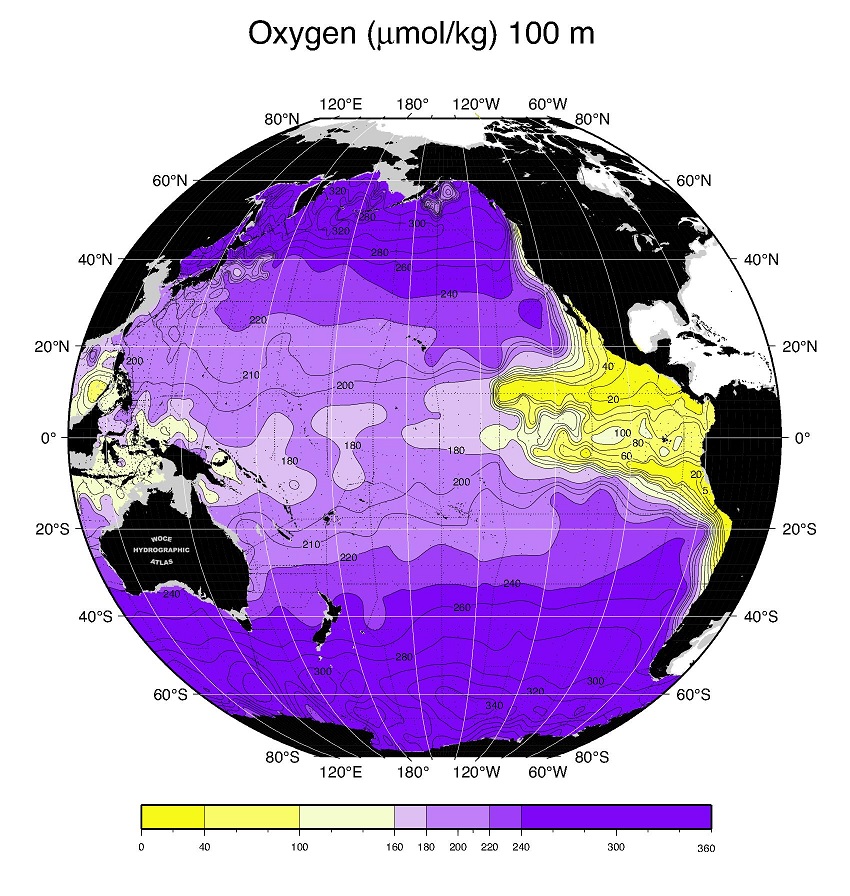Project Lead: Gabrielle Rocap, UW School of Oceanography Professor
eScience Liaison: Bryna Hazelton
Marine Oxygen Deficient Zones (ODZs) are naturally-occurring mid-layer oxygen poor regions of the ocean, sandwiched between oxygenated surface and deep layers. In the absence of oxygen, microorganisms in ODZs use a variety of other elements as terminal electron acceptors, most notably oxidized forms of nitrogen, reducing the amount of bio-available nitrogen in the global marine system through the production of N2O and N2 gas. These elemental transformations mean that marine ODZs have an outsized contribution to global biogeochemical cycling relative to the volume of ocean they occupy. As ODZs are expanding as the ocean warms, understanding the metabolic potential of the microbial communities within them is key to predicting global elemental cycles. The goal of this project is to use existing metagenomic data from ODZ microbial communities to quantify the metabolic pathways utilized by microorganisms in differently oxygenated water layers. We are using a set of 14 metagenomic libraries from different depths within the ODZ water column representing different oxygen levels (oxic, hypoxic, anoxic etc..) that have been assembled both individually and together. We will use the frequency of genes in microbial populations in each water sample to identify genetic signatures of different water regimes, with a particular focus on genes encoding enzymes mapped in the Kyoto Encyclopedia of Genes and Genomes (KEGG).

